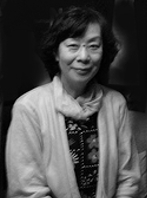Our website is made possible by displaying online advertisements to our visitors.
Please consider supporting us by disabling your ad blocker.
Moto Hagio
Moto Hagio | |
|---|---|
萩尾望都 | |
 Hagio in 2008 | |
| Born | May 12, 1949 Ōmuta, Fukuoka, Japan |
| Occupation | Manga artist |
| Years active | 1969–present |
| Notable work | |
| Title | Person of Cultural Merit |
| Awards | |
| Signature | |
 | |
Moto Hagio (萩尾 望都, Hagio Moto, born May 12, 1949) is a Japanese manga artist. Regarded for her contributions to shōjo manga (manga aimed at young and adolescent women), Hagio is considered the most significant artist in the demographic and among the most influential manga artists of all time, being referred to as the "god of shōjo manga" (少女漫画の神様, shōjo manga no kami-sama) by critics.
Hagio made her debut as a manga artist in 1969 at the publishing company Kodansha before moving to Shogakukan in 1971, where she was able to publish her more radical and unconventional works that had been rejected by other publishers. Her first serializations at Shogakukan – the vampire fantasy The Poe Clan, the shōnen-ai (male–male romance) drama The Heart of Thomas, and the science fiction thriller They Were Eleven – were among the first works of shōjo manga to achieve mainstream critical and commercial success. Hagio subsequently emerged as a central figure in the Year 24 Group, a grouping of female manga artists who significantly influenced shōjo manga in the 1970s by introducing new aesthetic styles and expanding the category to incorporate new genres. Since the 1980s, Hagio has drawn primarily adult-oriented manga in the manga magazine Petit Flower and its successor publication Flowers, notably Marginal, A Cruel God Reigns, and Nanohana.
While Hagio primarily authors works in the science fiction, fantasy, and shōnen-ai genres, her manga explores a wide range of themes and subjects, including comedy, historical drama, and social and environmental issues. She has been recognized with numerous awards both in Japan and internationally, including the Order of the Rising Sun, a Medal of Honor, and commendation as a Person of Cultural Merit.
Previous Page Next Page


